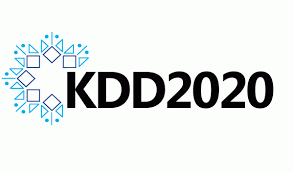Keynote speech 1
Title:
Computational Discovery of Causes
Presenter: Prof. Clark Glymour, Carnegie Mellon University
Abstract:
Biography:
I like the full version of Clark's Biography and you may want to check it out HEREKeynote speech 2
Title:
Causal Inference Under Interference And Network Uncertainty
Presenter: Prof. Ilya Shpitser, Johns Hopkins University
Abstract:
Biography:
Ilya Shpitser, a John C. Malone Assistant Professor in the Department of Computer Science, works on causal and semi-parametric inference, missing data, and algorithmic fairness – ubiquitous data complications that may arise in datasets of all types, such as those obtained from social networks, electronic medical records, criminal justice databases, or longitudinal studies.His methods yield principled approaches to detecting and addressing disparities and algorithmic bias, understanding causal pathways, and making appropriate causal inferences in settings where observations are systematically censored, unobserved confounders are present, observed realizations are correlated, or the problem is sufficiently complex that simple parametric approaches are unrealistic. The goal of his work is to allow inferences about cause effect relationships to be made from complex, high-dimensional observational data, which is a crucial task in the empirical sciences and rational decision-making.
Recent applications of Shpitser’s work include analysis of adherence in HIV patients, investigating the association between highly active anti-retroviral therapy in pregnant women and birth defects, and developing predictive models and dimension reduction strategies using oncology data. His research also examines corrections for discriminatory bias in criminal justice data and learning predictors and causes of adverse outcomes in cardiac surgery patients.
In 2017, Shpitser was honored with the Causality in Statistics Education Award by the American Statistical Association for his annual Johns Hopkins course on causal inference for advanced undergraduate and graduate students in data science allied disciplines (computer science, statistics, public health, social science, and economics). Before joining Johns Hopkins, he was a lecturer in Statistics at the University of Southampton, Southampton, UK.
Shpitser serves as associate editor of the Journal of Causal Inference. He is a member of the research advisory board at Arnold Ventures, a limited liability company for research and evidence-based methods, and a senior program committee member for the International Conference on Machine Learning (ICML), Neural Information Processing Systems (NeurIPS). Additionally, he reviews articles for Uncertainty in Artificial Intelligence (UAI), the International Joint Conference on Artificial Intelligence (IJCAI), European Conference on Artificial Intelligence (ECAI), and the Journal of Machine Learning Research, among others.
Shpitser has authored numerous papers and several book chapters, including for the Handbook of Graphical Models (Chapman & Hall, 2018). He co-organized a tutorial on graphical methods for identification at the 2019 Atlantic Causal Inference Conference. Among his invited presentations were the 2019 Harvard Applied Statistics Workshop, the 2019 Institute for Computational and Experimental Research in Mathematics (ICERM) Workshop on Models and Machine Learning for Causal Inference and Decision Making in Health Research, the 2018 Uncertainty in Artificial Intelligence (UAI) causal inference workshop, and the 2018 Defense Advanced Research Projects Agency (DARPA) Ground Truth program.
He received his BA in Computer Science and Mathematics (1999) from the University of California, Berkeley, and his MS (2004) and PhD (2008) in Computer Science from the University of California, Los Angeles. Shpitser’s postdoctoral fellowships include the UCLA’s Department of Computer Science and Harvard University’s Department of Epidemiology.
Keynote speech 3
Title:
On the Causal Foundations of AI
Presenter: Prof. Elias Bareinboim, Columbia University
Biography:
Elias Bareinboim is an associate professor in the Department of Computer Science and the director of the Causal Artificial Intelligence (CausalAI) Laboratory at Columbia University. His research focuses on causal and counterfactual inference and their applications to artificial intelligence and machine learning as well as data-driven fields in the health and social sciences. His work was the first to propose a general solution to the problem of ``causal data-fusion,'' providing practical methods for combining datasets generated under different experimental conditions and plagued with various biases. In the last years, Bareinboim has been exploring the intersection of causal inference with decision-making (including reinforcement learning) and explainability (including fairness analysis). Before joining Columbia, he was an assistant professor at Purdue University and received his Ph.D. in Computer Science from the University of California, Los Angeles. Bareinboim was named one of ``AI's 10 to Watch'' by IEEE, and is a recipient of an NSF CAREER Award, the Dan David Prize Scholarship, the 2014 AAAI Outstanding Paper Award, and the 2019 UAI Best Paper Award.

